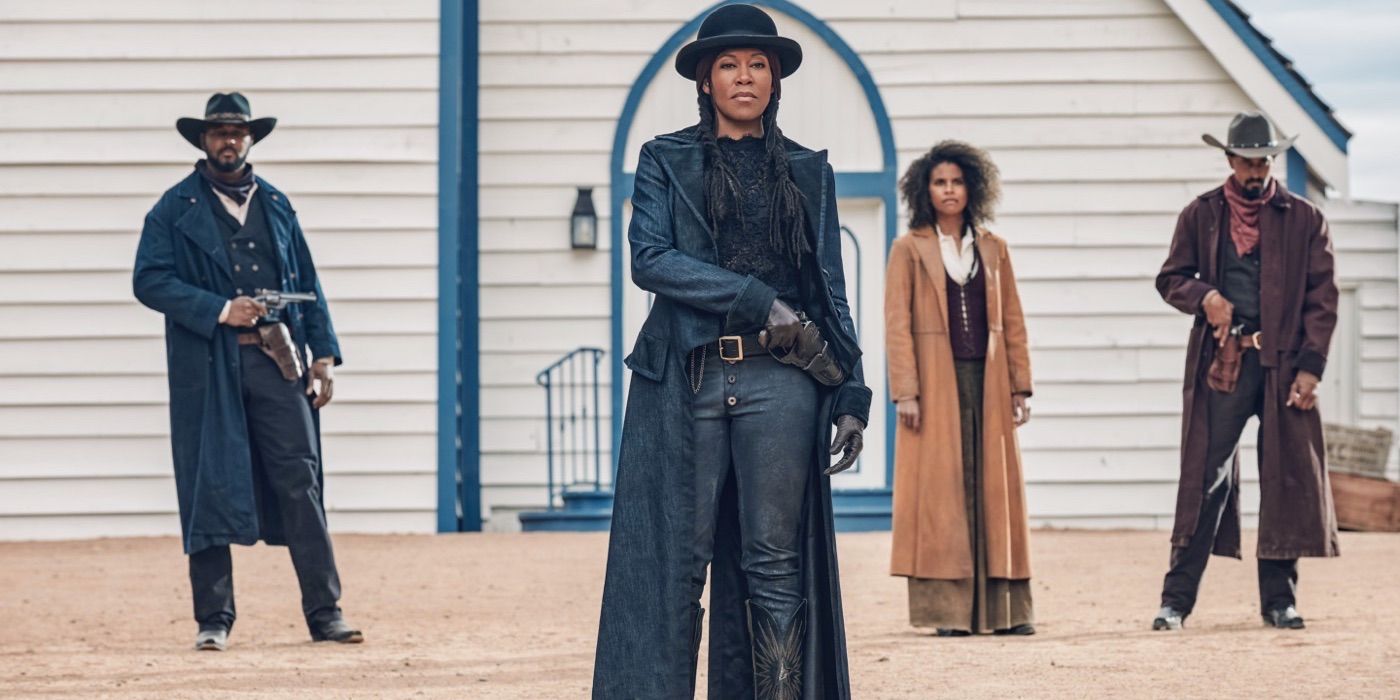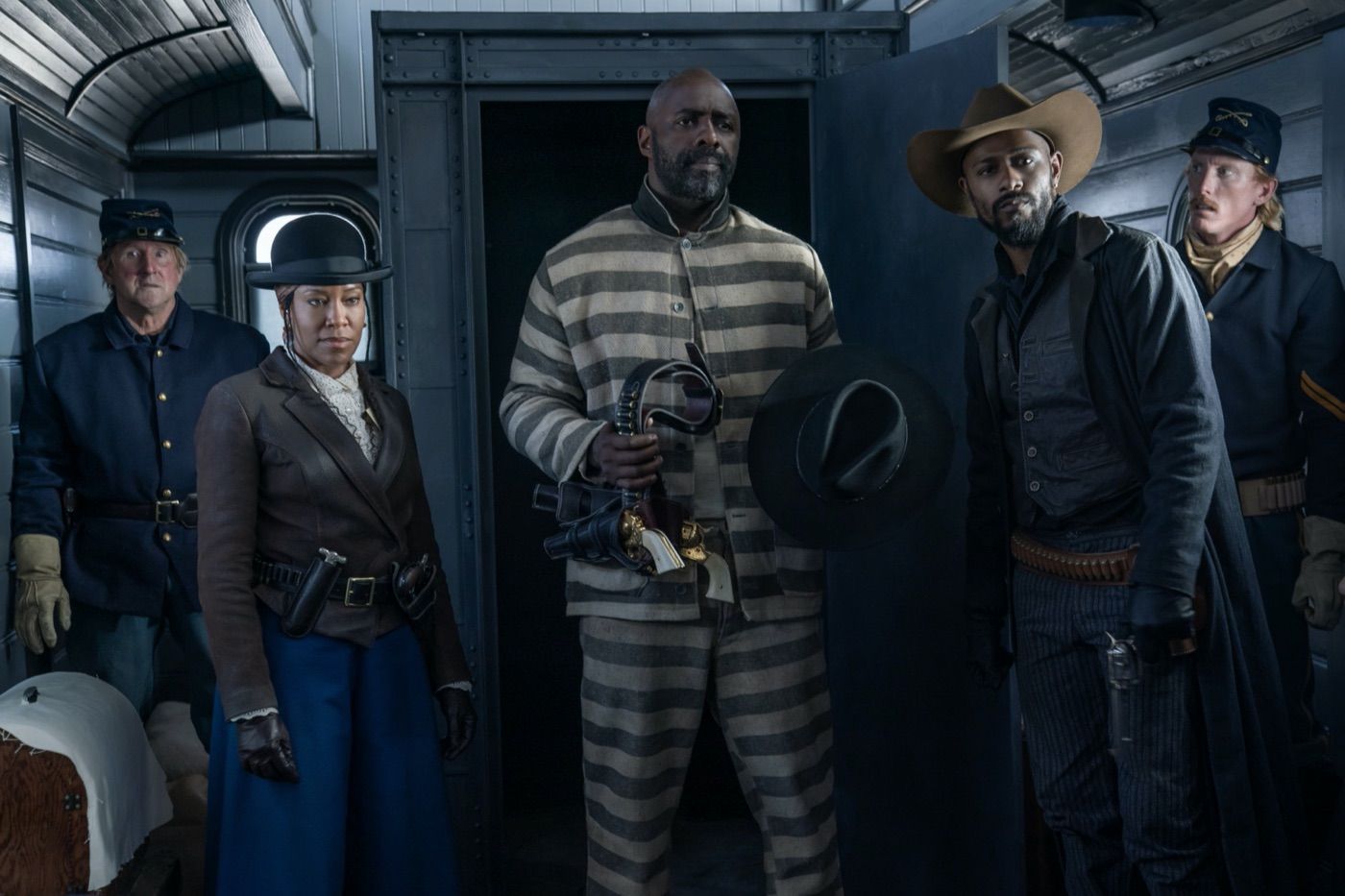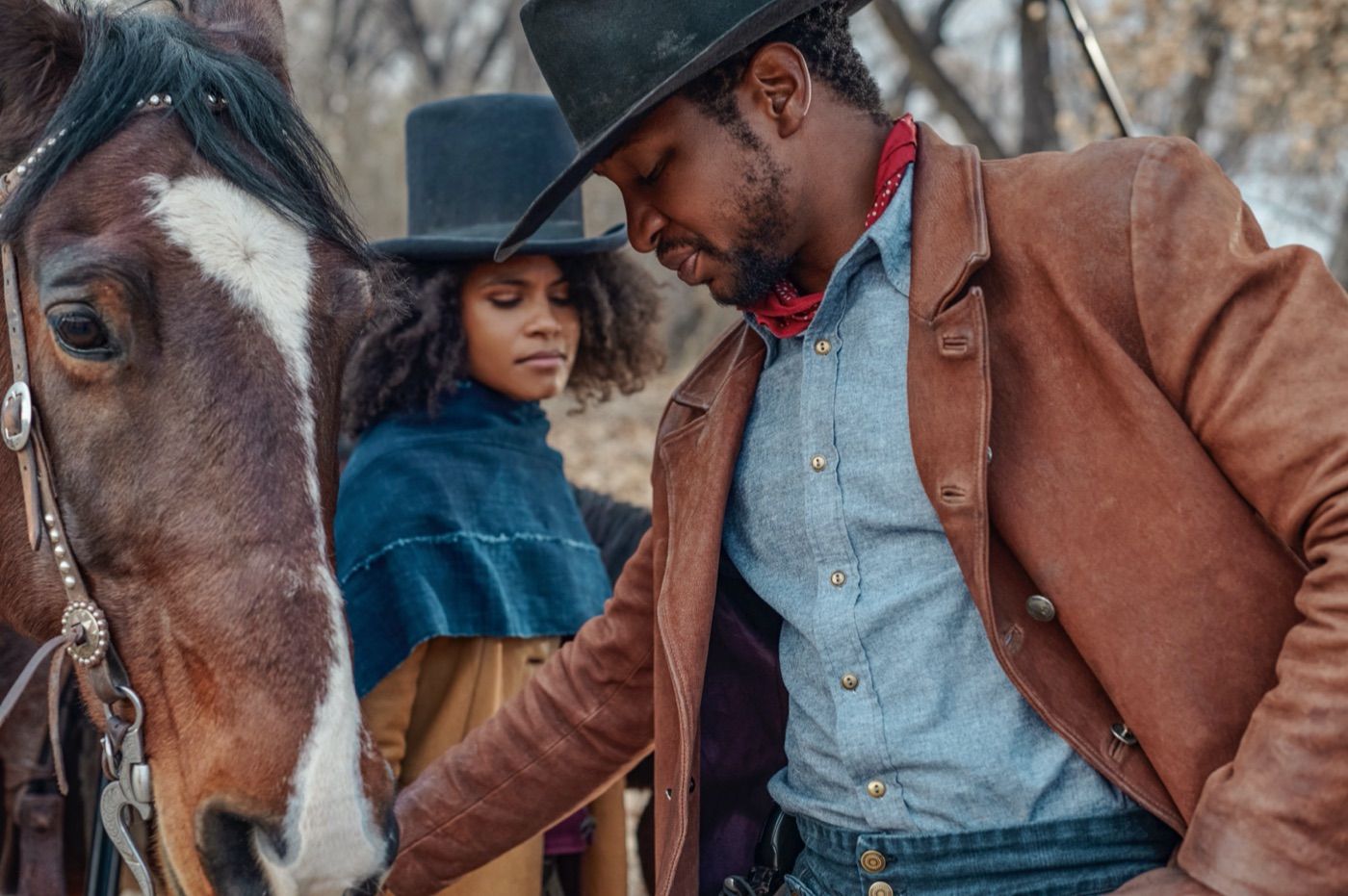Black characters have typically been excluded from leading most genres, but it’s particularly notable in the Western, which presents an American story that’s almost entirely white, which is a problem for a lot of reasons, but especially when your story is meant to have some kind of historical verisimilitude. On the surface, Jeymes Samuel’s Western The Harder They Fall looks like a corrective to this problem. He’s collected some of the best actors working today and cast them in a genre where they typically wouldn’t get to be the center of the action. We have Black actors in the lead roles, riding through towns populated solely by Black residents, and it’s great to see performers occupy a space typically denied to them through whitewashing and the systemic prejudice of a Hollywood system that did not make room for actors of color. The main problems with The Harder They Fall are that it doesn’t tell a compelling story or have interesting characters. Samuel has created a film bursting with talent and potential and then doesn’t really do anything with it other than give it some visual flair. There are plenty of forgettable Westerns, but it’s a shame that The Harder They Fall is among them.
As a child, Nat Love (Jonathan Majors) lost his mother and father to the notorious outlaw Rufus Buck (Idris Elba). As an adult, Nat is now an outlaw himself. He robs other robbers, but he’s still looking for revenge against Rufus. Nat rides with his gang comprised of his old flame Mary Fields (Zazie Beetz), quick-draw artist Jim Beckworth (RJ Cyler), the determined Cuffee (Danielle Deadwyler), and sharpshooter Bill Pickett (Edi Gathegi). When they steal some money from a gang that had stolen from Rufus, it puts them on a collision course with Buck’s gang, which includes the fearsome Trudy Smith (Regina King) and Cherokee Bill (LaKeith Stanfield).
Samuel and co-writer Boaz Yakin approach their cast in that everyone should be a badass, which I’m sure is fun for the actors, but it also flattens out the dynamic of the movie. On the one hand, yes, it’s great to see these Black actors empowered in a genre that has largely excluded them, but I would counter that you can empower an actor far more with a memorable, multi-faceted character than just letting the audience know that who they’re playing is ruthless and good at violence. Ranse Stoddard in The Man Who Shot Liberty Valance is not a tough guy, and his lack of toughness makes him ill-suited for his environment, but it doesn’t matter because he’s a captivating character played by a terrific actor. Samuel has nothing but terrific actors at his disposal, and he ends up trapping them in boxes where they mostly come off as sociopaths even when the film stops so someone like Trudy or Rufus can give a long monologue about their past to explain why they are the way that they are.
Without interesting characters, there’s not much dramatic tension in the entire film beyond the inevitable collision between Nat and Rufus. However, that conflict is basic revenge and even when the film attempts to add in some backstory, it doesn’t illuminate any larger stakes or what these men represent. There’s simply no ethos at work in these characters, and while their positioning as Black outlaws in a genre connotated as white by its exclusion of Black characters in the past is interesting, I’m not sure if The Harder They Fall really adds anything to the conversation. It’s possible that Samuel is simply making the argument that the Western genre as a whole is sociopathic and that Black characters are rarely given license to have this kind of freedom and thus their mere presence is commentary enough. But it also limits these characters because instead of getting to be three-dimensional human beings, they’re left with simply being cool and it’s at the actor’s discretion of how they want to play that coolness.
It’s worth noting that the characters played here are based on real people, but that they’ve been put into a fictional narrative, which is a curious decision. It feels like The Harder They Fall respects these people enough to include them in a story, but not enough to do anything relating to their real lives. Of course, movies are under no obligation to be historical documents, and it’s not like I watch Tombstone and think, “Ah, yes. I’m sure this is how it went down.” But it’s a confusing decision to pull real people out of history and say that only their names are important, not their deeds. Like the rest of The Harder They Fall, existence is all that’s required, not detail or nuance.
When you get to the big, climactic battle, there’s really nothing to engage with. Rufus’ goals are horribly muddled (is he inviting a confrontation with Nat, or is he trying to set up his own town for reasons that are never really explored), none of the characters feel significantly different beyond the superficial (Jim Beckworth is the loud-mouthed gunslinger while Cherokee Bill is the reserved, soft-spoken gunslinger). It feels like the big goal of The Harder They Fall is to simply get great Black actors into an action-western where they’re in the spotlight and driving the story forward. And honestly, there are far worse reasons to make a movie. It’s just a shame that with this collection of talent getting to play in the Western genre, The Harder They Fall never does more than ask them to smirk and fire off six-shooters.
Rating: C
The Harder They Fall is now on Netflix.



